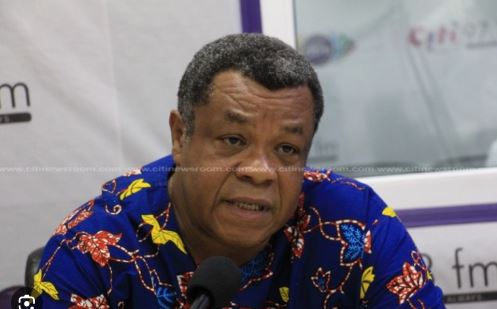By Prince Antwi
Augustus Obuadum Tanoh, Presidential Advisor and Head of the 24-Hour Economy Secretariat, has announced that the 24-Hour Economy Policy document will be presented to Parliament following its official launch on July 2, 2025. This move is aimed at ensuring a comprehensive national debate and garnering cross-party support for effective implementation.
Speaking at a media briefing in Accra on June 30, Mr. Tanoh said the presentation to Parliament aligns with a recent proposal by the Speaker of Parliament, Alban Bagbin, who emphasized the need for legislative input and bipartisan endorsement of the policy.
“We need to debate the content of the programme to justify the creation of an Authority. So, it is inevitable that it is going to happen,” Tanoh stated.
Mr. Tanoh further revealed plans to transform the 24-Hour Economy Secretariat into a statutory Authority to expand its operational scope and mandate. This conversion, he said, would require the approval of Parliament.
“There has been approval to convert the current 24-Hour Secretariat into an Authority. And of course, it will need to be passed by a parliamentary majority,” he noted.
President John Dramani Mahama is scheduled to officially unveil the 24-Hour Economy Policy on Wednesday, July 2, 2025. The initiative is a central component of the government’s strategy to drive industrial transformation, with the ambitious goal of creating at least 1.7 million jobs over the next four years.
To support its implementation, the government plans to mobilize $4 billion from international development partners. An initial seed capital of $300 million will be made available to support businesses and individuals participating in the programme.
“The policy is designed to stimulate private sector growth, enhance productivity, and build an inclusive economy that works for all Ghanaians,” Tanoh emphasized.
The 24-Hour Economy Policy is anchored on three main pillars:
Production Transformation
Supply Chain and Market Efficiency
Human Capital Development
These pillars are supported by eight targeted sub-programmes:
Grow 24 – Boost agricultural production for food security
Make 24 – Expand manufacturing and service delivery
Connect 24 – Strengthen infrastructure and logistics
Show Ghana – Promote culture and tourism, targeting diaspora engagement
Go Ghana – Mobilize national effort toward development
Digital Technology – Leverage tech for innovation and productivity
Aspire 24 – Shift public mindset, reduce bureaucracy, and boost workplace efficiency
Made-in-Ghana Initiative – Encourage production and consumption of local goods
Mr. Abdul-Nasser Suglo Alidu, Head of Strategy and Programmes at the Secretariat, delivered a detailed presentation on the policy, highlighting its focus on agriculture-led production and an export-driven economy.
Among the flagship components is the Volta Economic Corridor, which will feature industrial parks, agro-ecological hubs, and lake transport services to catalyze economic growth across the region.
Abdul-Nasser stressed that the policy has a national character and aims to harness Ghana’s human capital to achieve sustainable socio-economic transformation.
Drawing inspiration from successful models in Singapore, Malaysia, China, and Denmark, he expressed optimism that Ghana could become a leading industrialized economy in West Africa.
“The 24-Hour Economy is more than a policy—it’s a national movement designed to transform how we produce, trade, and work,” he said.
